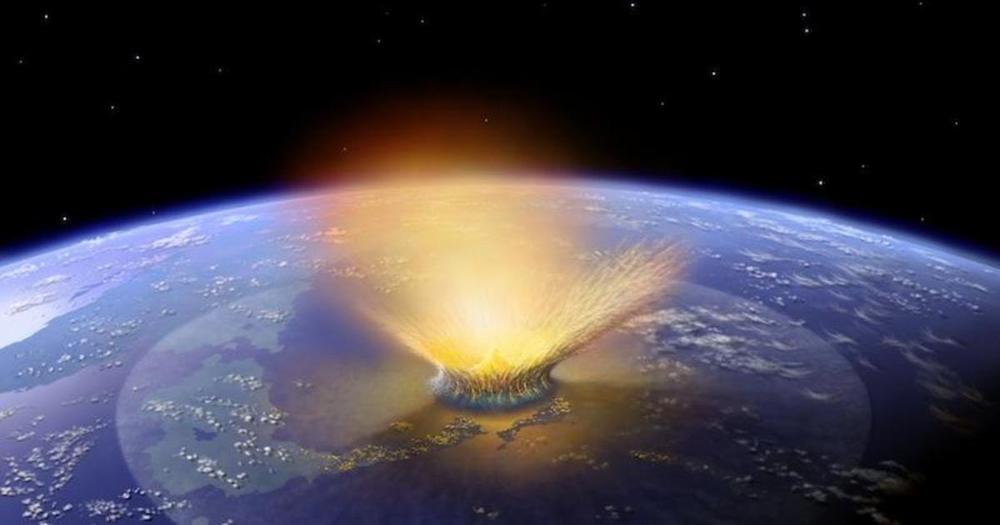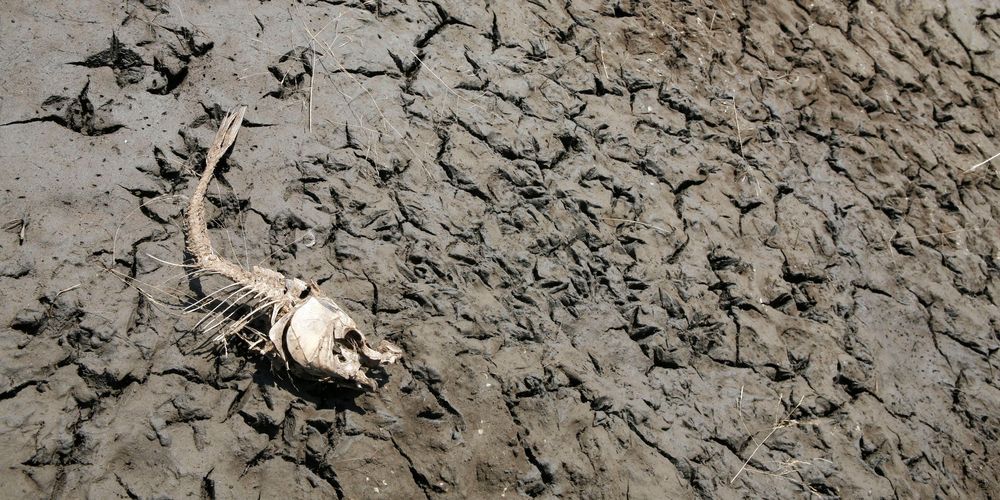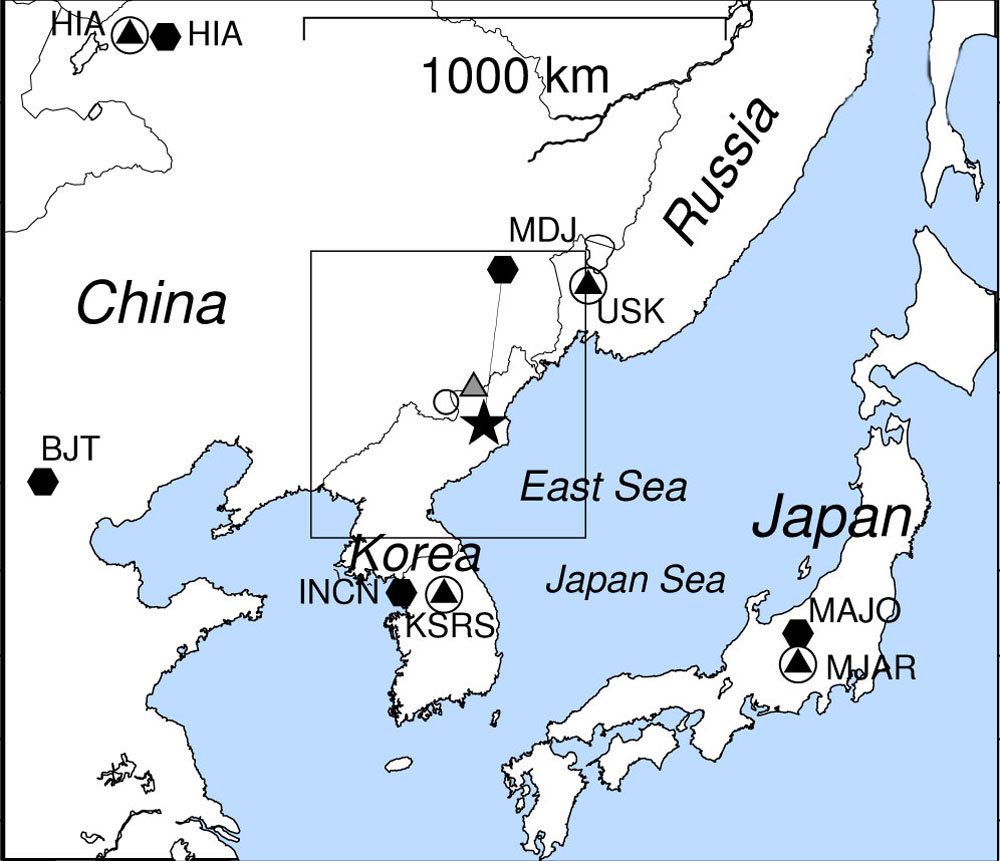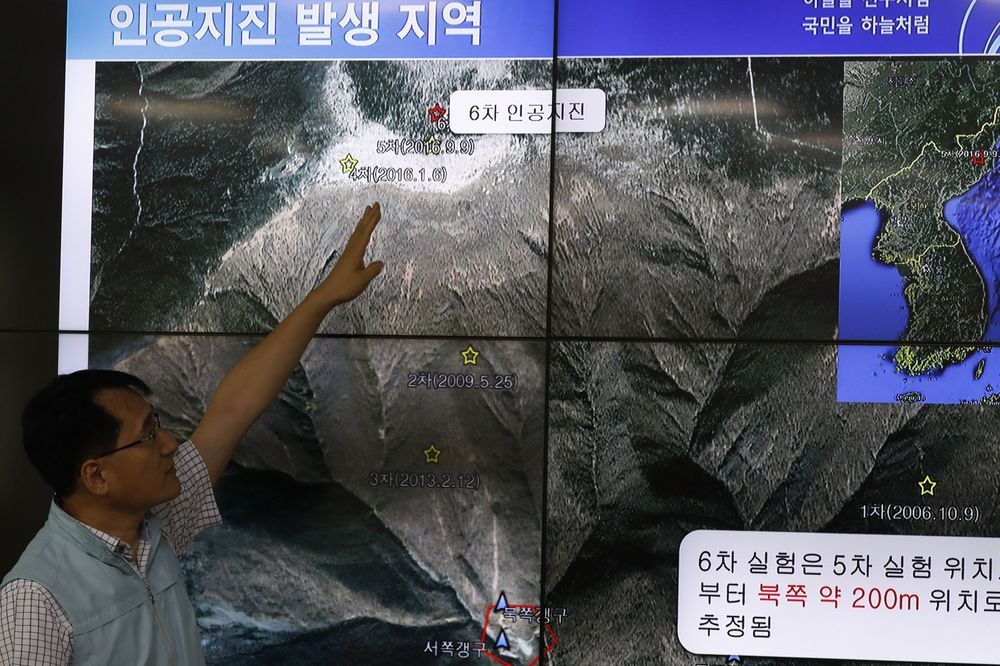Archive for the ‘existential risks’ category: Page 84
May 17, 2019
We are in the midst of an extinction crisis, warn UN scientists
Posted by Derick Lee in categories: existential risks, policy
The global rate of species extinction “is already tens to hundreds of times higher than it has been, on average, over the last 10 million years,” according to the Intergovernmental Science-Policy Platform on Biodiversity and Ecosystem Services (IPBES), a UN committee, whose report was written by 145 experts from 50 countries.
One million of the planet’s eight million species are threatened with extinction by humans, scientists warned Monday in what is described as the most comprehensive assessment of global nature loss ever.
Their landmark report paints a bleak picture of a planet ravaged by an ever-growing human population, whose insatiable consumption is destroying the natural world.
Continue reading “We are in the midst of an extinction crisis, warn UN scientists” »
May 9, 2019
Bill Nye: Killer Asteroid Will Hit Earth ‘Like Control-Alt-Delete For Everything’
Posted by Quinn Sena in categories: asteroid/comet impacts, existential risks
A killer asteroid will hit the Earth, and it is not a matter of “if” but “when,” based on the discussions during last week’s 2019 International Planetary Defense Conference.
Bill Nye opened up about the threat of asteroid impacts and possible extinction, explaining that people need to be more aware of this threat. “The Earth is going to get hit with another asteroid,” Nye said during the 2019 International Planetary Defense Conference. “The problem is, we don’t know when.”
Nye, who is known as the TV “Science Guy” and is currently the CEO of the Planetary Society, continued by saying that even if an asteroid doesn’t hit Earth within the next few decades, the threat is still there.
May 6, 2019
Up to 1 million species are facing extinction, according to a new UN report. Without them, we could run out of food
Posted by Quinn Sena in categories: existential risks, food, habitats
A new United Nations report on the world’s biodiversity found that between 500,000 and 1 million species face extinction due to habitat destruction.
May 2, 2019
Buzz Aldrin calls for ‘great migration of humankind to Mars’
Posted by Michael Lance in category: existential risks

Humanity must make a giant leap in space exploration and begin the process of migrating to Mars, argues Apollo astronaut Buzz Aldrin.
The 89-year-old said a ‘great migration’ is necessary not only for the sake of exploration but for the ongoing survival of the human race.
Continue reading “Buzz Aldrin calls for ‘great migration of humankind to Mars’” »
Apr 28, 2019
North Korea’s 2017 bomb test set off later earthquakes, new analysis finds
Posted by Quinn Sena in categories: existential risks, military, physics
Using newly refined analysis methods, scientists have discovered that a North Korean nuclear bomb test last fall set off aftershocks over a period of eight months. The shocks, which occurred on a previously unmapped nearby fault, are a window into both the physics of nuclear explosions, and how natural earthquakes can be triggered. The findings are described in two papers just published online in the journal Seismological Research Letters.
The September 3, 2017 underground test was North Korea’s sixth, and by far largest yet, yielding some 250 kilotons, or about 17 times the size of the bomb that destroyed Hiroshima. Many experts believe the device was a hydrogen bomb—if true, a significant advance from cruder atomic devices the regime previously exploded. The explosion itself produced a magnitude 6.3 earthquake. This was followed 8.5 minutes later by a magnitude 4 quake, apparently created when an area above the test site on the country’s Mt. Mantap collapsed into an underground cavity occupied by the bomb.
The test and collapse were picked up by seismometers around the world and widely reported at the time. But later, without fanfare, seismic stations run by China, South Korea and the United States picked up 10 smaller shocks, all apparently scattered within 5 or 10 kilometers around the test site. The first two came on Sept. 23, 2017; the most recent was April 22, 2018. Scientists assumed the bomb had shaken up the earth, and it was taking a while to settle back down. “It’s not likely that there would be so many events in that small area over a small period of time,” said the lead author of one of the studies, Won-Young Kim, a seismologist at Columbia University’s Lamont-Doherty Earth Observatory. “These are probably triggered due to the explosion.”
Continue reading “North Korea’s 2017 bomb test set off later earthquakes, new analysis finds” »
Apr 28, 2019
Earthquake science could have predicted North Korea’s nuclear climbdown
Posted by Quinn Sena in categories: energy, existential risks, nuclear weapons, policy, science
Just days after North Korea announced it was suspending its testing programme, scientists revealed that the country’s underground nuclear test site had partially collapsed. This assessment was based on data gathered from smaller earthquakes that followed North Korea’s biggest nuclear test in 2017. A new study published in Science has now confirmed the collapse using satellite radar imaging.
The collapse may have played a role in North Korea’s change in policy. If correct, and with the hindsight of this research, we might have speculated that the North Koreans would want to make such an offer of peace. This shows how scientific analysis normally reserved for studying natural earthquakes can be a powerful tool in deciphering political decisions and predicting future policy across the globe.
In fact, another unusual earthquake in South Korea in 2017 also has the potential to affect geopolitics, this time by changing energy policy. “Seismic shift” may be a cliche often used by journalists and policymakers to describe changing political landscapes, but these recent earthquakes along the Korean Peninsula remind us there can really be authentic links between seismic events and global affairs.
Continue reading “Earthquake science could have predicted North Korea’s nuclear climbdown” »
Apr 27, 2019
NASA Preps Mission to Most Interesting Asteroid in Our Solar System
Posted by Shailesh Prasad in categories: asteroid/comet impacts, existential risks
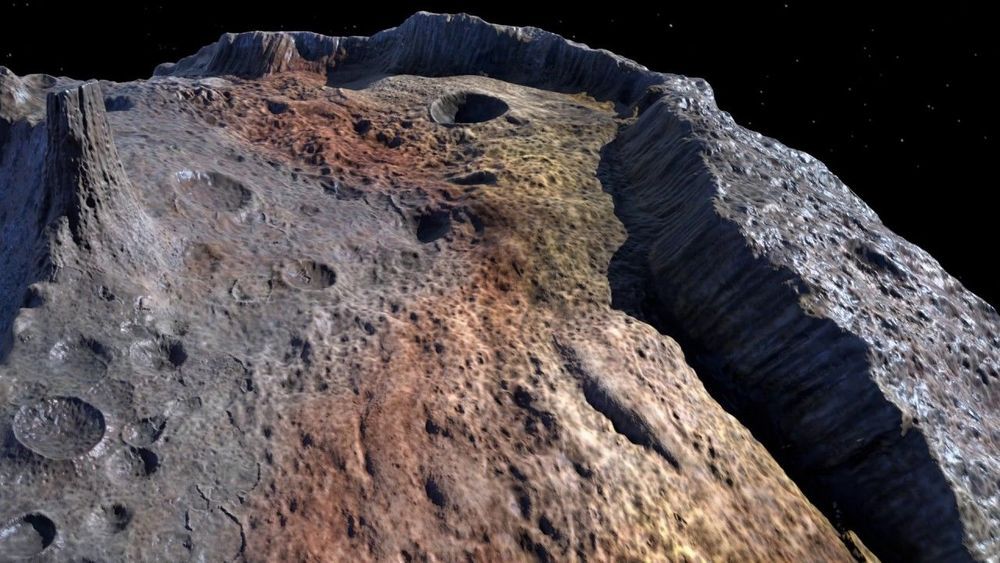
In 2022, if all goes well, NASA will launch Psyche, a space probe intended to visit the asteroid of the same name (16 Psyche is its formal designation). It’s a particularly exciting mission given Psyche’s unique nature and highly unusual composition.
The asteroid belt is composed of three types of asteroid: C-type (carbonaceous, ~75 percent of all asteroids), S-type (silicate-rich, ~17 percent of asteroids) and M-type (metal-rich), which are roughly 10 percent of the total population. The numbers, in this case, don’t add up to 100 percent because we aren’t sure of the exact ratios. 16 Psyche is an M-type asteroid made of iron-nickel. What makes it unusual is that it’s believed to be the now-exposed core of a protoplanet. It’s also estimated to be worth $10,000 quadrillion dollars, if anybody has a towing hitch handy.
Continue reading “NASA Preps Mission to Most Interesting Asteroid in Our Solar System” »
Apr 23, 2019
Canadian researchers warn of ‘cascading impacts’ as bumblebee species decline
Posted by Quinn Sena in categories: existential risks, food
A team of researchers at York University has warned that the American bumblebee is facing imminent extinction from Canada, and this could lead to “cascading impacts” throughout the country.
The imminent extinction classification is considered the highest and most at-risk classification before extinction.
About 42 of the more than 850 species of bees in Canada are bumblebees — important pollinators needed to grow crops, including apples, tomatoes, blueberries and legumes, as well as trees, shrubs and wildflowers.
Continue reading “Canadian researchers warn of ‘cascading impacts’ as bumblebee species decline” »
Apr 17, 2019
An Interstellar Rock Like ‘Oumuamua May Have Hit Earth In 2014
Posted by Quinn Sena in categories: alien life, asteroid/comet impacts, existential risks
Unusual Trajectory
The new research hasn’t yet been published, but it’s available on the preprint server ArXiv as of Monday. In it, Harvard astronomer Avi Loeb — the same dude who doubled down on the idea that ‘Oumuamua could be an alien spacecraft — suggests that a three-foot-wide interstellar meteor flew over Papa New Guinea’s Manus Island before crashing down.
Because of the meteor’s high speed and particular trajectory past Earth, Loeb and his student Amir Suraj suggest that it couldn’t have been bound in an orbit about the Sun. Rather, they argue, it might have come from somewhere beyond our solar system.
Continue reading “An Interstellar Rock Like ‘Oumuamua May Have Hit Earth In 2014” »


